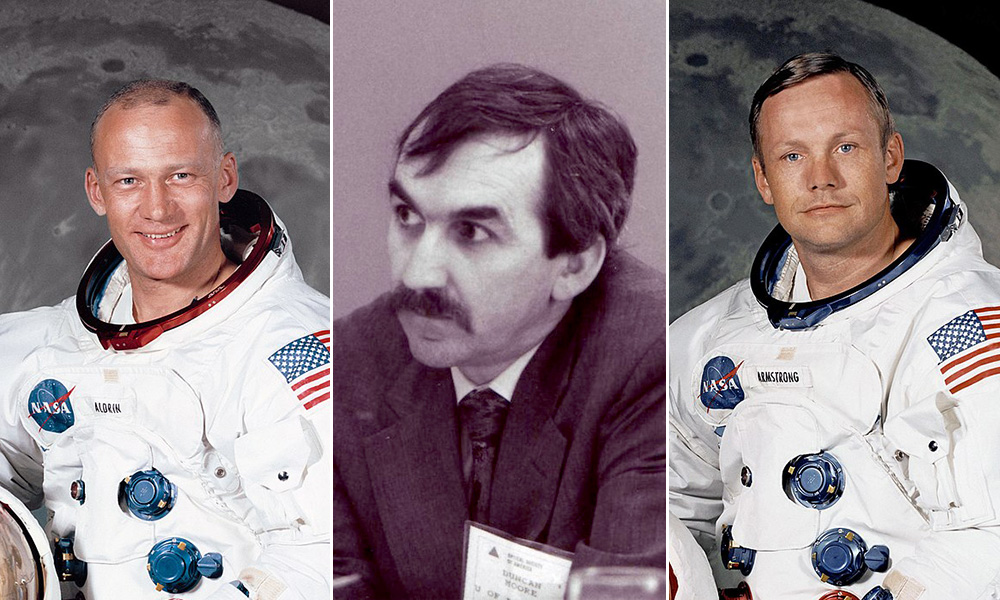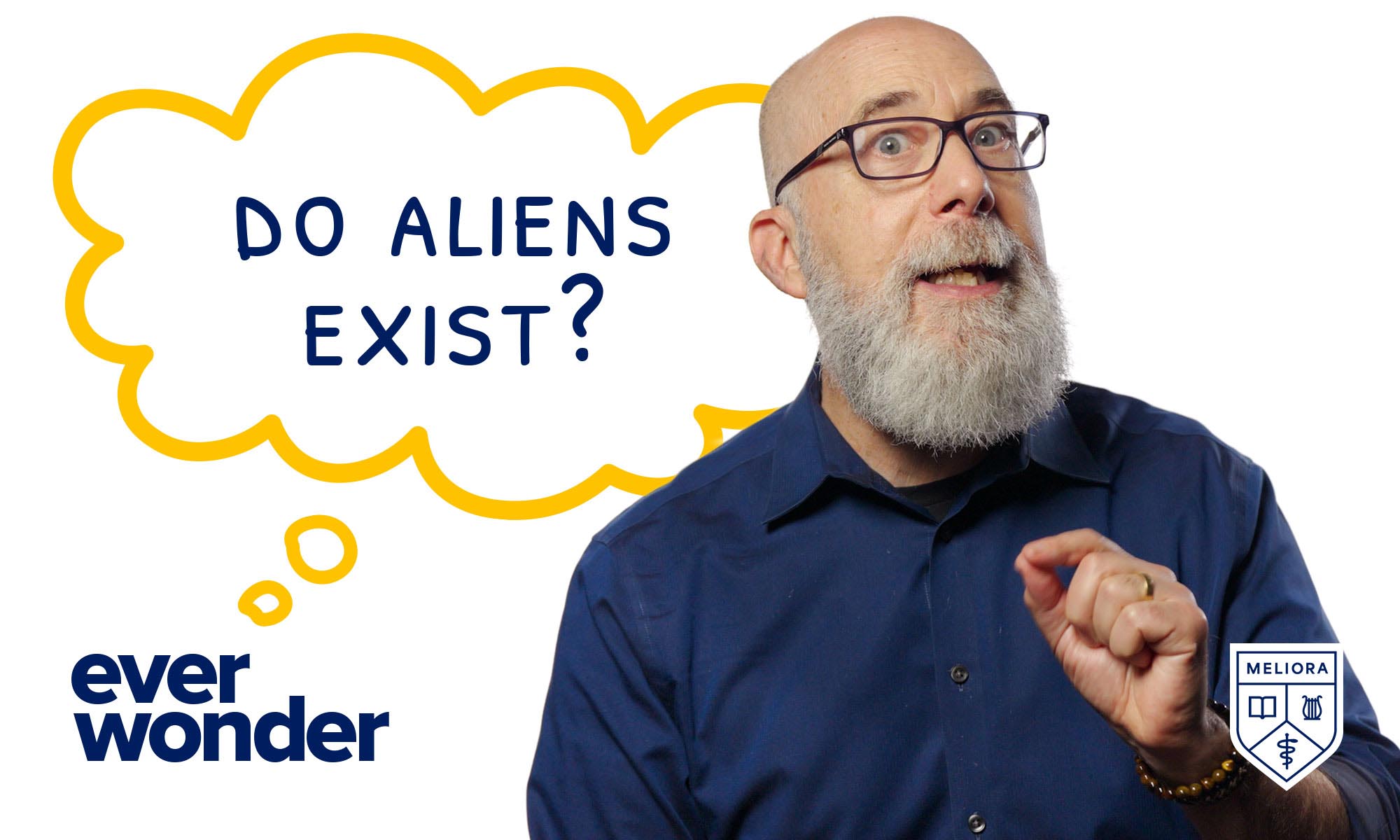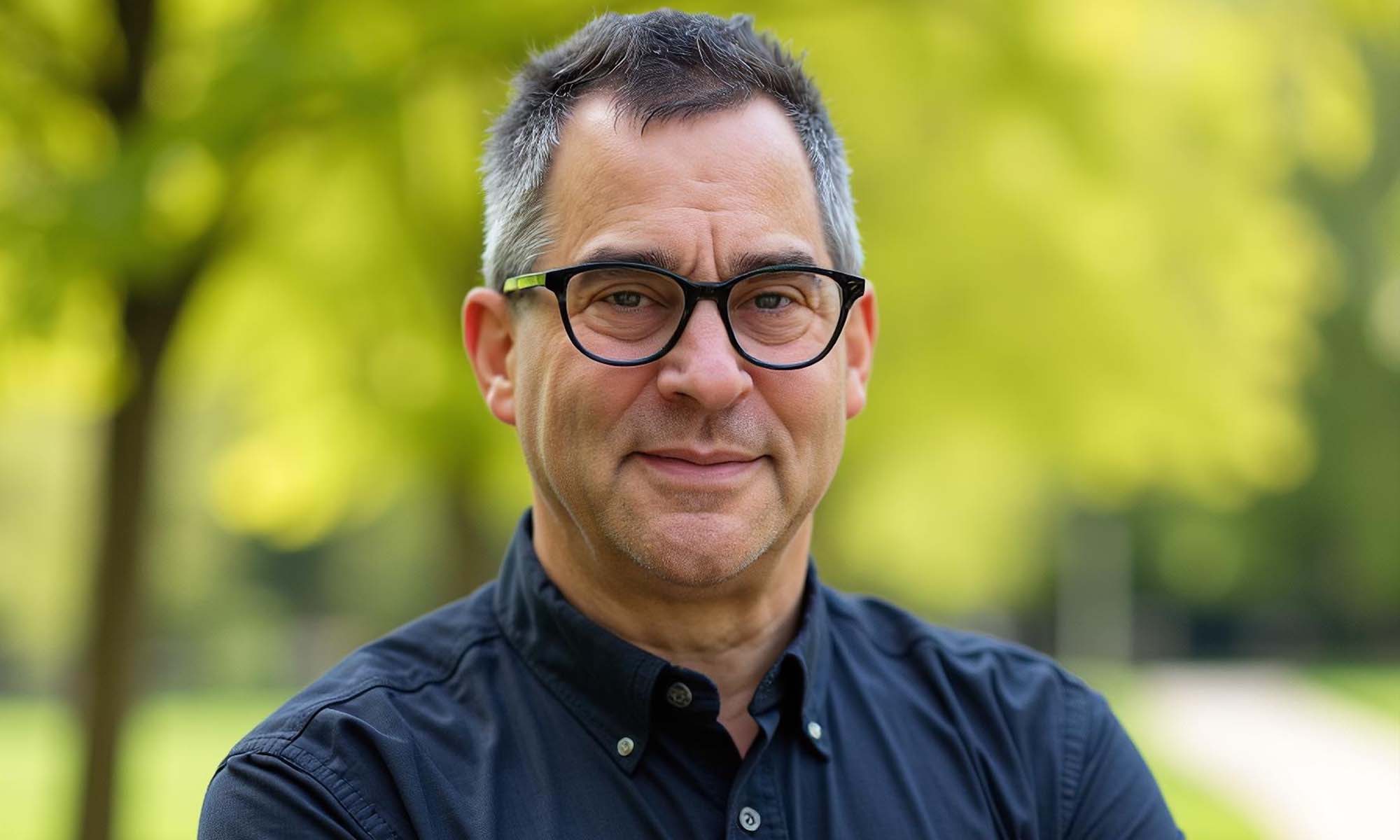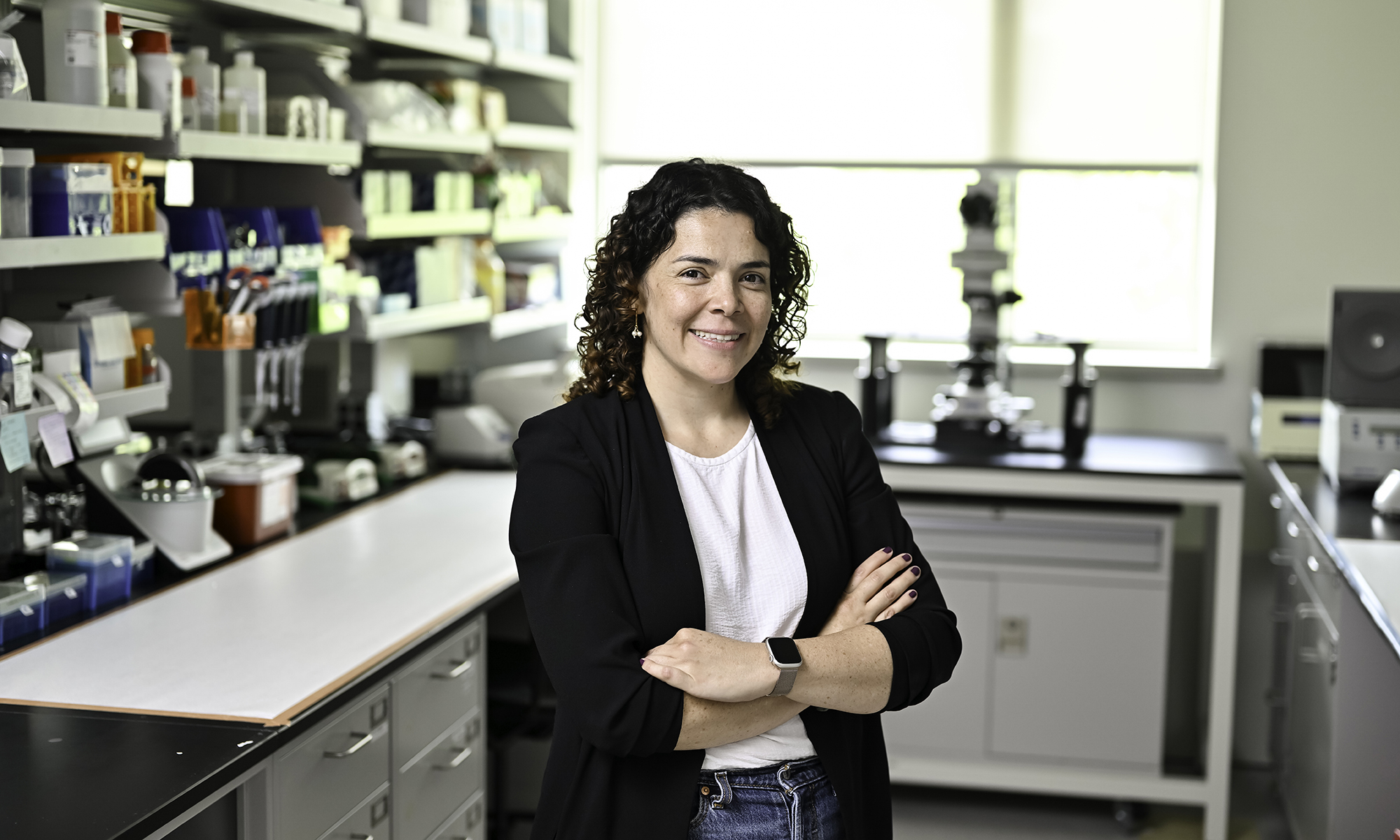So, what was the back-up plan if the radios failed during the historic Apollo 11 moon walk? Essentially a head butt.
Duncan Moore, vice provost for entrepreneurship and professor of optical engineering at the University of Rochester, gleaned this insight when Neil Armstrong and Buzz Aldrin went to the White House to present a moon rock to President Bill Clinton on July 20, 1999 to commemorate the moon walk’s 30th anniversary.
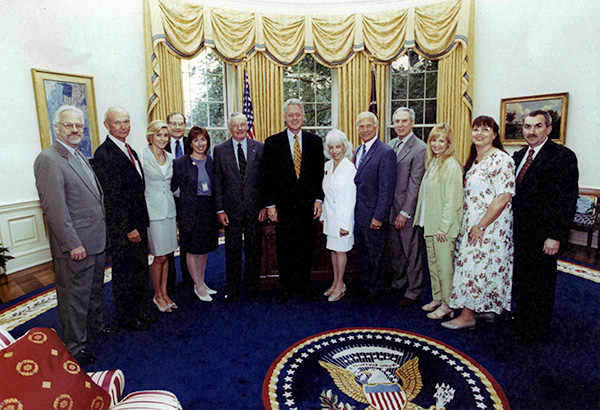
Moore, shown at far right in this photo of the Oval Office ceremony, was then serving as associate director for technology in the White House Office of Science and Technology Policy. Before the ceremony, he had a chance to ask Armstrong and Aldrin two questions while waiting with them in the Cabinet room.
If the radios had failed, the two astronauts explained, they would have simply walked up to each other and pressed their helmets together. “Because the helmets had air, the acoustic waves could be transmitted from one helmet through the other,” Moore says. “I thought, what a simple system, but extremely elegant!”
He also wondered what it sounded like when the astronauts took off from the moon in their small liftoff vehicle, compared to their takeoff from earth atop a large rocket blasting through a much stronger gravitational pull.
“They looked at each other and said, ‘hmmmm…it was kind of like a lawn mower sound,’” Moore recalls. “I thought that was very cool.”

